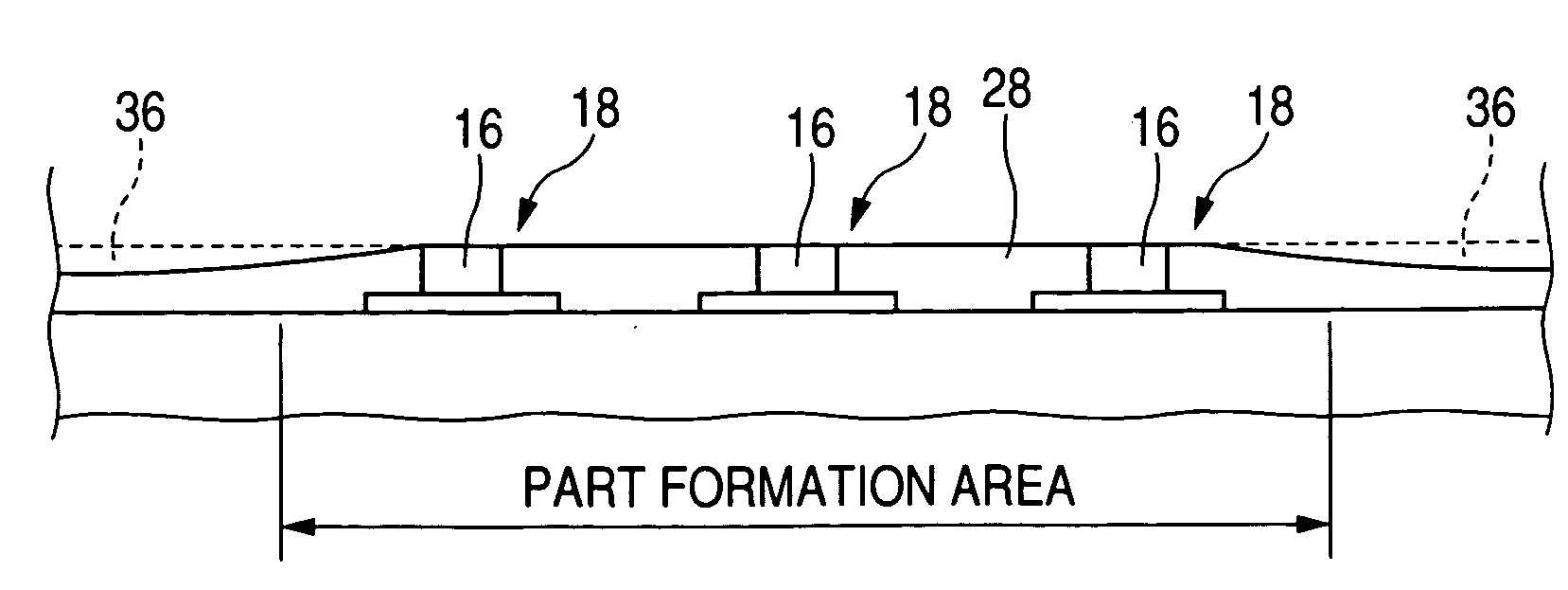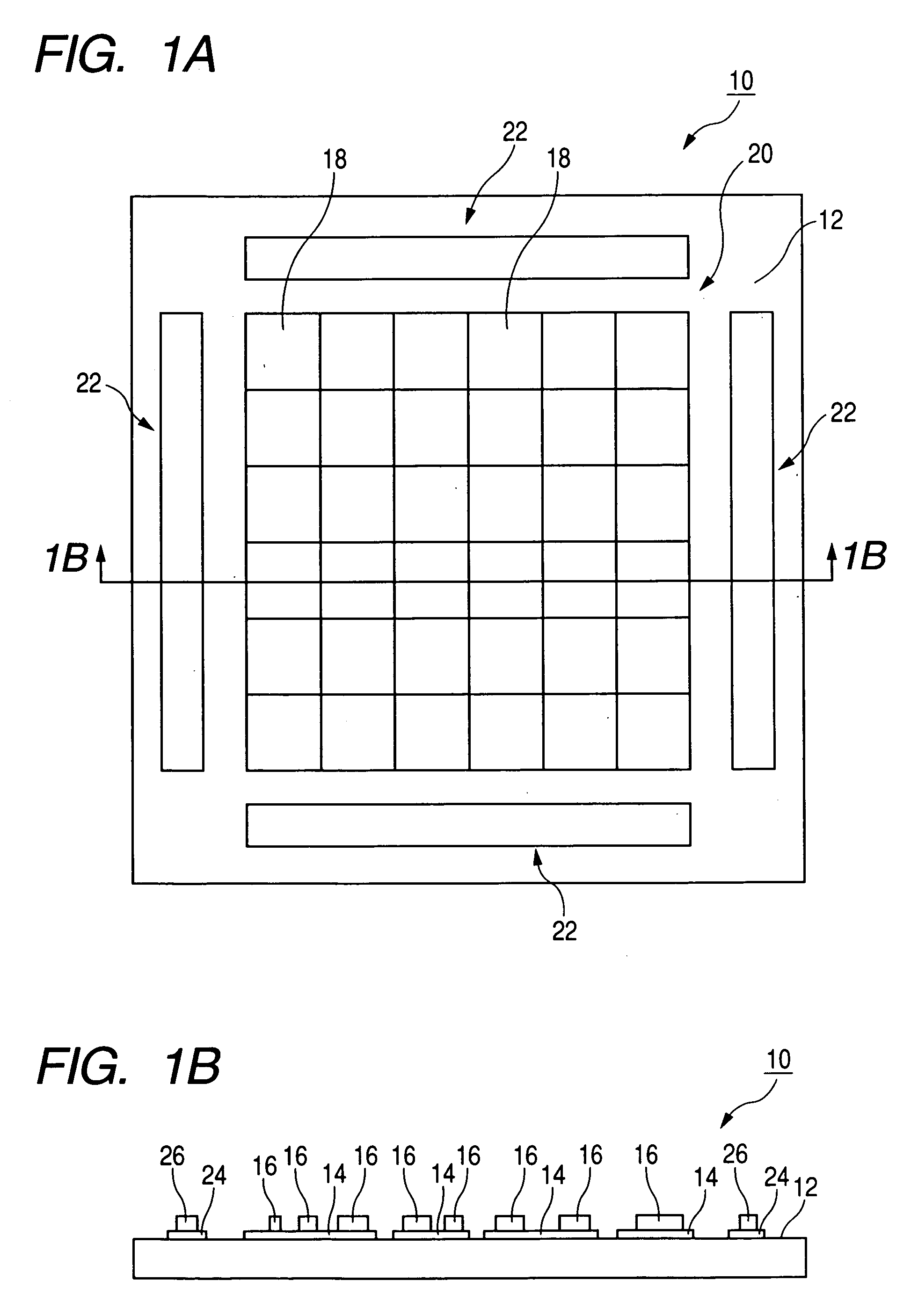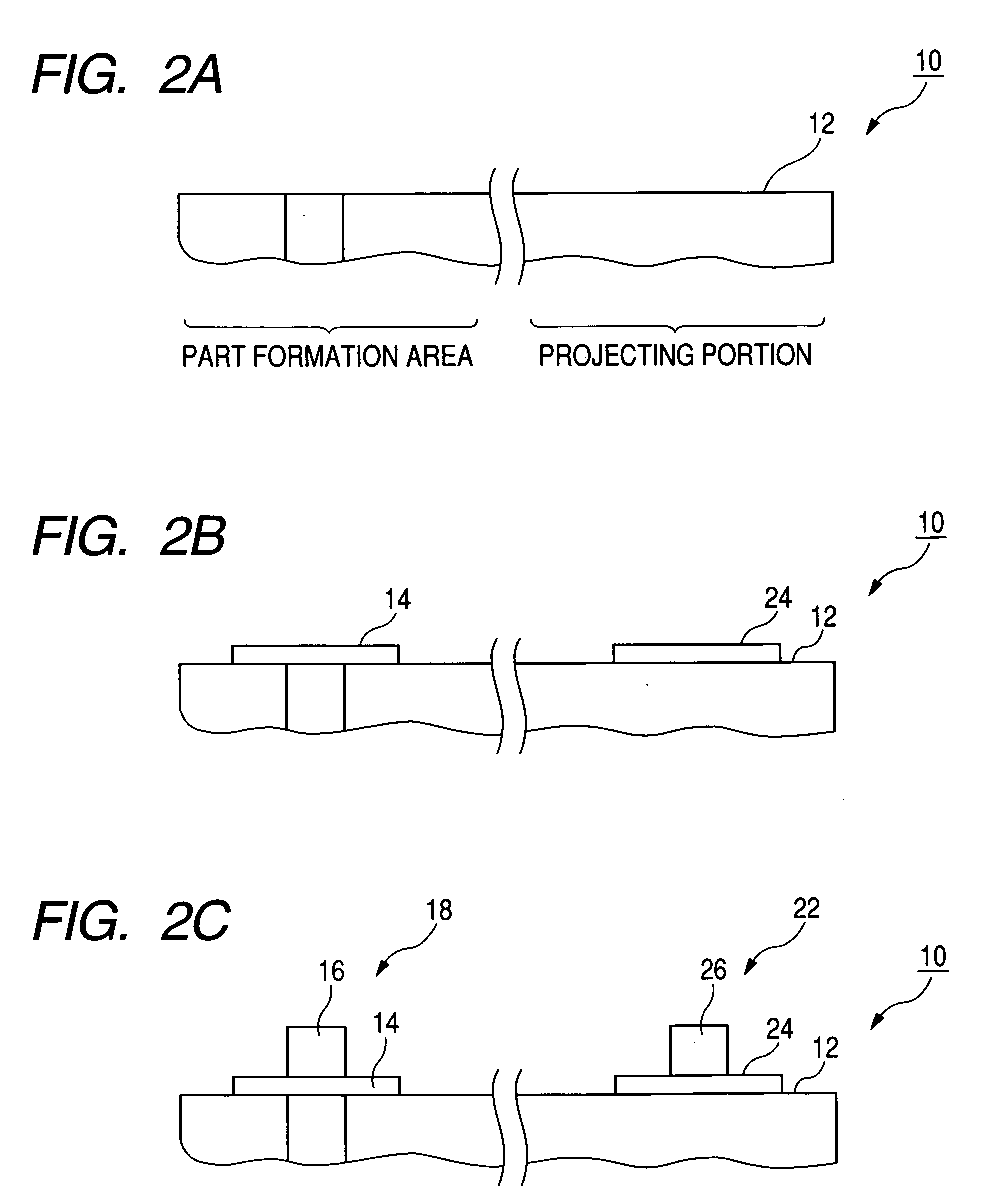Electronic part manufacturing method and base sheet
a manufacturing method and electronic part technology, applied in the direction of printed circuit manufacturing, non-metallic protective coating application, conductive pattern formation, etc., can solve the problem of not controlling unable to make the overall thickness of the layer uniform, and no consideration of the control of the overall thickness of the layer, etc. problem, to achieve the effect of reducing the amount of resin, preventing a large amount of resin, and increasing the flow resistance of resin
- Summary
- Abstract
- Description
- Claims
- Application Information
AI Technical Summary
Benefits of technology
Problems solved by technology
Method used
Image
Examples
Embodiment Construction
[0035] In the following, a preferred embodiment of a method for manufacturing an electronic part and a substrate sheet according to the present invention will be described with reference to the drawings.
[0036]FIGS. 1A and 1B illustrate a substrate sheet according to an embodiment. FIG. 1A is a plan view, and FIG. 1B is a cross sectional view taken along line 1B-1B in FIG. 1A. As shown in these drawings, wiring patterns 14 and columnar conductors 16 (so-called posts) serving as interlayer connecting portions are formed on a surface of the substrate sheet 10 according to this embodiment. The wiring patterns 14 and the columnar conductors 16 constitute conductor portions 18.
[0037] A part formation area 20 is set in the central portion of the substrate sheet 10, and the plurality of conductor portions 18 mentioned above are formed in this part formation area so that a plurality of electronic parts are to be to be produced therein.
[0038] Outside the part formation area 20 on the subst...
PUM
| Property | Measurement | Unit |
|---|---|---|
| thickness | aaaaa | aaaaa |
| flow resistance | aaaaa | aaaaa |
| electrically conductive | aaaaa | aaaaa |
Abstract
Description
Claims
Application Information
 Login to View More
Login to View More - R&D
- Intellectual Property
- Life Sciences
- Materials
- Tech Scout
- Unparalleled Data Quality
- Higher Quality Content
- 60% Fewer Hallucinations
Browse by: Latest US Patents, China's latest patents, Technical Efficacy Thesaurus, Application Domain, Technology Topic, Popular Technical Reports.
© 2025 PatSnap. All rights reserved.Legal|Privacy policy|Modern Slavery Act Transparency Statement|Sitemap|About US| Contact US: help@patsnap.com



